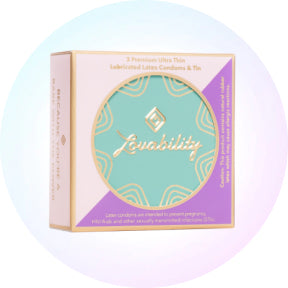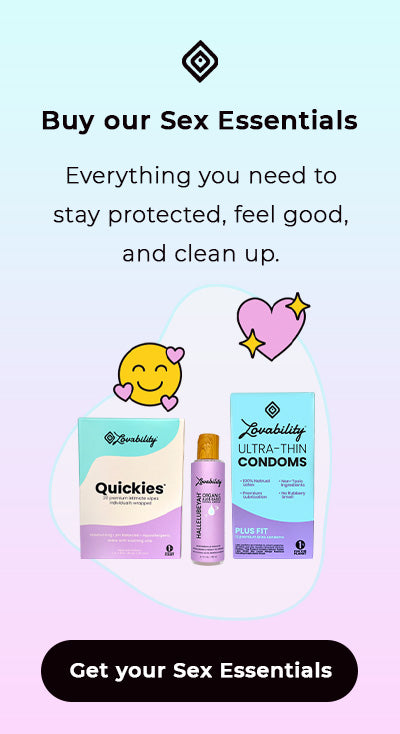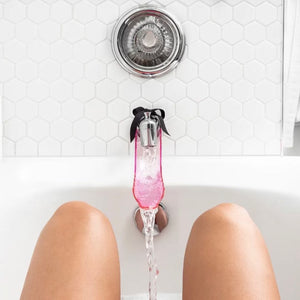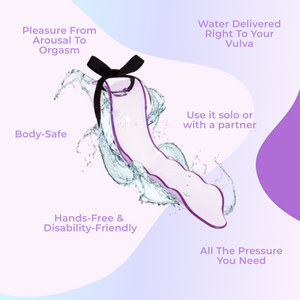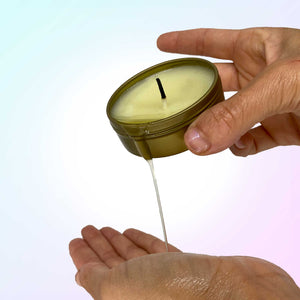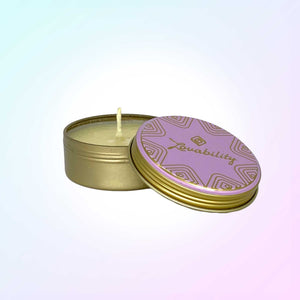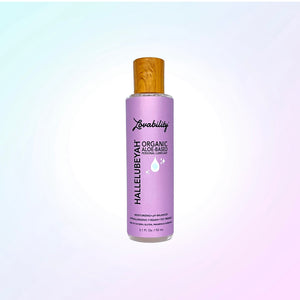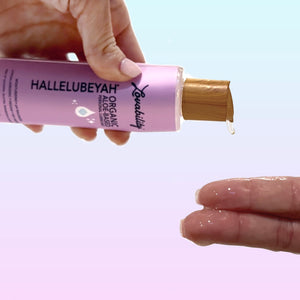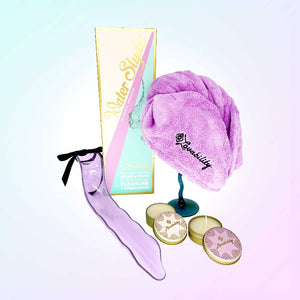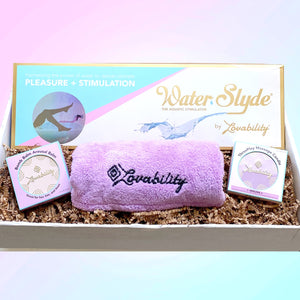Now, more than ever, environmental concerns are a hot-button issue. We’re voting for our politicians based on their environmental platforms, refusing to buy from companies with large carbon footprints, and even gardening and raising animals for a sustainable lifestyle. From the Green New Deal to bans on plastic bags and bottles, the movement to live sustainably is rapidly growing. YAS!
Sustainability Matters - Even For Sex
Environmental concerns have extended to every aspect of our lives — and our sex lives are no exception. In a recent Lovability survey, almost all of you babes expressed a strong desire for eco-conscious feminism and to making your sex lives eco-friendly.
Is Parenthood Eco-Friendly?
Some environmentalists and environmental leaders (like Representative Alexandria Ocasio-Cortez) are even encouraging people to question whether parenthood is environmentally-friendly. Having access to and actively using your preferred form of birth control are some of the best ways to support your choice (or just to give you more time to make your decision).
Are Condoms Environmentally Friendly?
A huge ongoing environmental concern is eliminating single-use plastics – plastic materials that are typically used once and are less likely to be recycled or be biodegradable. And that’s where eco-babes like you may feel stuck.
If I don’t feel like parenthood is the right environmental choice for me, but condoms are a single-use plastic, am I a bad eco-babe for using them?
Don’t worry, we’ll let you in on the truth about condoms and how eco-friendly they really are.
How To Make Your Sex Life More Sustainable
In honor of Earth Day (April 22,) let’s talk about how you can make your sex life more eco-friendly without sacrificing your safety.
How do Condoms Affect the Environment?
Despite the fact that condoms are single-use plastics, environmentalists unanimously agree that condoms are still AMAZING AF environmental resources. Ultimately, the environmental benefits created by condom use far outweigh any drawbacks.
Firstly, condoms are incredibly necessary because, when properly used, they are the only birth control method that can effectively prevent the spread of most STIs. While you may choose to use other forms of birth control to prevent pregnancy, only condoms can help prevent the spread of STIs. However, by making educated choices about the types of condoms you use, you can stay safe while being kinder to the planet.
On your typical condom run, you (or your partner) may have focused on brand, fit, or fancy features to determine how you’re going to stay protected during sex. Next time, look at the materials / ingredients your condom is made of to make a more eco-friendly choice.
Polyurethane (thin, clear plastic) condoms, polyisoprene (latex made in a lab) condoms and nitrile condoms (used to make “internal” condoms) are common latex alternatives. While these are great options for those who have latex allergies, be aware they are synthetic and will never biodegrade.
On the other side, there’s natural latex condoms and lambskin condoms which are made out of natural materials. These types are considered biodegradable. Keep in mind that condoms will never completely biodegrade because of other additives used to strengthen and preserve them, but it’s better than not biodegrading at all.
Vegan Condoms
Depending on how you prefer to flex your eco-friendly lifestyle, you may have chosen to cut animal products from your life as well. Whether you use synthetic or latex condoms, make sure your condoms are made of vegan-friendly materials if you want your sex life to be vegan, too. Some brands use animal by-product (i.e., casein) during the manufacturing process to soften the latex so it becomes smooth and flexible. Though lambskin condoms are still a great biodegradable option, they are of course not vegan (if that’s important to you) and, more importantly, do not protect against STIs either.
No matter what condom you choose, reproductive justice and environmental justice are closely tied.
When women have more control over their choices, the environment tends to be much better. You’re doing wonders just by flexing your choice.
Recycle
You’ve probably heard of the famous environmental mantra: Reduce, Reuse, Recycle. While trying to make your life (and your sex life) more environmentally-friendly, keep in mind that reducing and reusing are often better for the environment than recycling. However, reducing and reusing are not always viable options and, when they aren’t, recycling or composting is way better than contributing to growing landfills.
We’ve already mentioned that condom use is often unavoidable, so after you use a condom can you recycle it? Unfortunately, you can’t toss your used condoms in your recycling bin with your LaCroix and White Claws. The most eco-conscious way to dispose of your condoms after sex is to simply throw it out with your regular trash. If you need more discrete disposal, it’s fine to wrap your condom in a biodegradable paper bag or tissue.
But, whatever you do: DON’T FLUSH USED CONDOMS — they’re more likely to clog your pipes or get in bodies of water that way. Even the most biodegradable condoms cannot decompose in water, so it’s best to return your latex to the Earth by way of your garbage bin.
While we’re on the subject of recycling, check to see if any components of your condom’s packaging is recyclable. While any plastic wrapping and foil wrappers will not be recyclable, the box will likely be recyclable. When selecting a condom brand, consider choosing one that has 100% recyclable packaging or uses recyclable paper boxes, and ones that have eliminated unnecessary plastic from their packaging and shipping material.
Reuse
Now onto reusing. Unfortunately, condoms should NEVER be reused. You should be using one condom per erection. Seriously, DON’T RINSE AND REUSE A CONDOM.
However, unused expired condoms (yes, condoms do expire) are another story. While you shouldn't use expired condoms to protect yourself against pregnancy and STIs, they can be used for a DIY craft. Remember those toy tubes filled with water, glitter, and plastic fish? Put an adult spin on it by filling your expired condom with baby oil, water and eco-friendly biodegradable glitter. Tie off the end and enjoy watching the swirling glitter whenever you need de-stress.
Lovability’s 100% recycled paper packaging is designed to be repurposed or reused. Lovability’s 12- and 30-pack of condoms come in a handy and Insta-worthy drawer-style box. When your box is empty, reuse it for something else. Consider using your empty box for an on-the-go hook-up kit with a few condoms, lube, and maybe a mini bullet vibrator or some sexy lingerie. You can also use your empty box for storing jewelry, hair ties or bobby pins.
Reduce
Reducing your use of single-use items and living a zero-waste or low-waste lifestyle is the best way to help the environment. While condoms are unavoidable IMO, there are other ways to reduce your waste while having a safe and healthy sex life.
If you can, choosing biodegradable lambskin or natural latex condoms can help reduce landfill plastic as well. Don’t feel bad if natural latex isn’t an option for you — you can still reduce in other areas. As noted before, choose brands that have recyclable packaging, which reduces the amount of packaging in landfills.
Choose Eco-Friendly Brands That Are Transparent About Their Ingredients
Find brands that are transparent about how its condoms are made. Condoms that are free of dyes, fragrances, irritating chemicals, spermicide, and “detectable” nitrosamines reduce the amount of nasty chemicals going into the environment (and into you).
Condoms are an important part of a safe and healthy sex life, but there’s definitely ways that you, as an eco-babe, can make informed decisions that make your sex life safe for both you AND the Earth. We hope you found our info helpful and that you’ll find it much easier to make your sex life eco-friendly.
Have your own fun way to show love to Mother Earth on Earth Day this year (in or outside of your sex life)? We’d love to hear them in the comments below.
<Revised from original post of 4/18/2020>
About The Author
Bailey Shea (@baileykshea on Instagram) is a recent graduate of the University of Connecticut, having received a Bachelor of Arts in English and Communication with a minor in Women’s Studies. She is a strong feminist who hopes to use her future career in publishing and marketing to magnify unheard voices. Outside the writing world, Bailey is an aspiring powerlifter, the human embodiment of a sunflower, and a Taco Bell connoisseur. You can find more of her work at baileykshea.com.
More Articles You Might Love
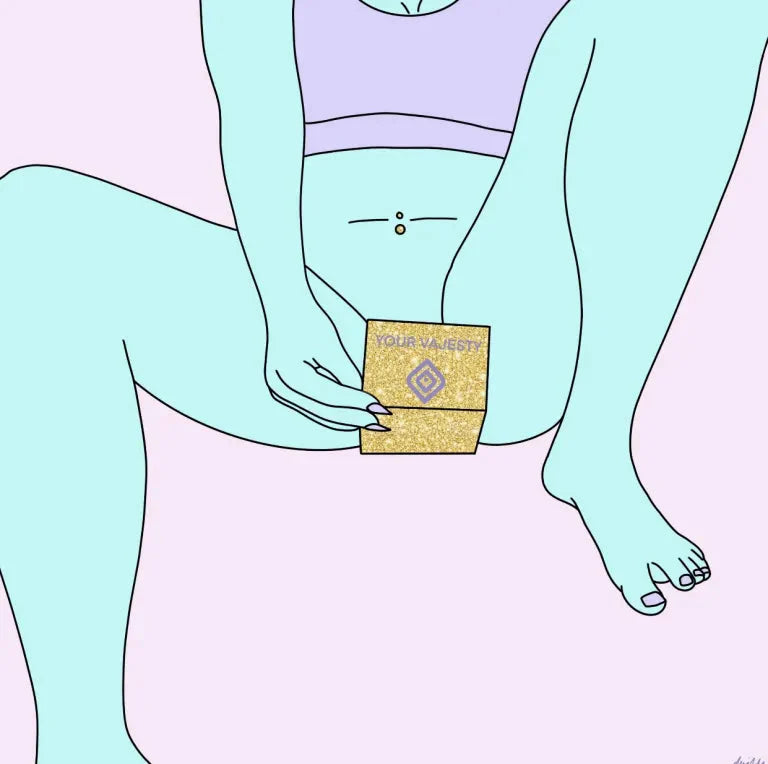
Get To Know Your Vulva



